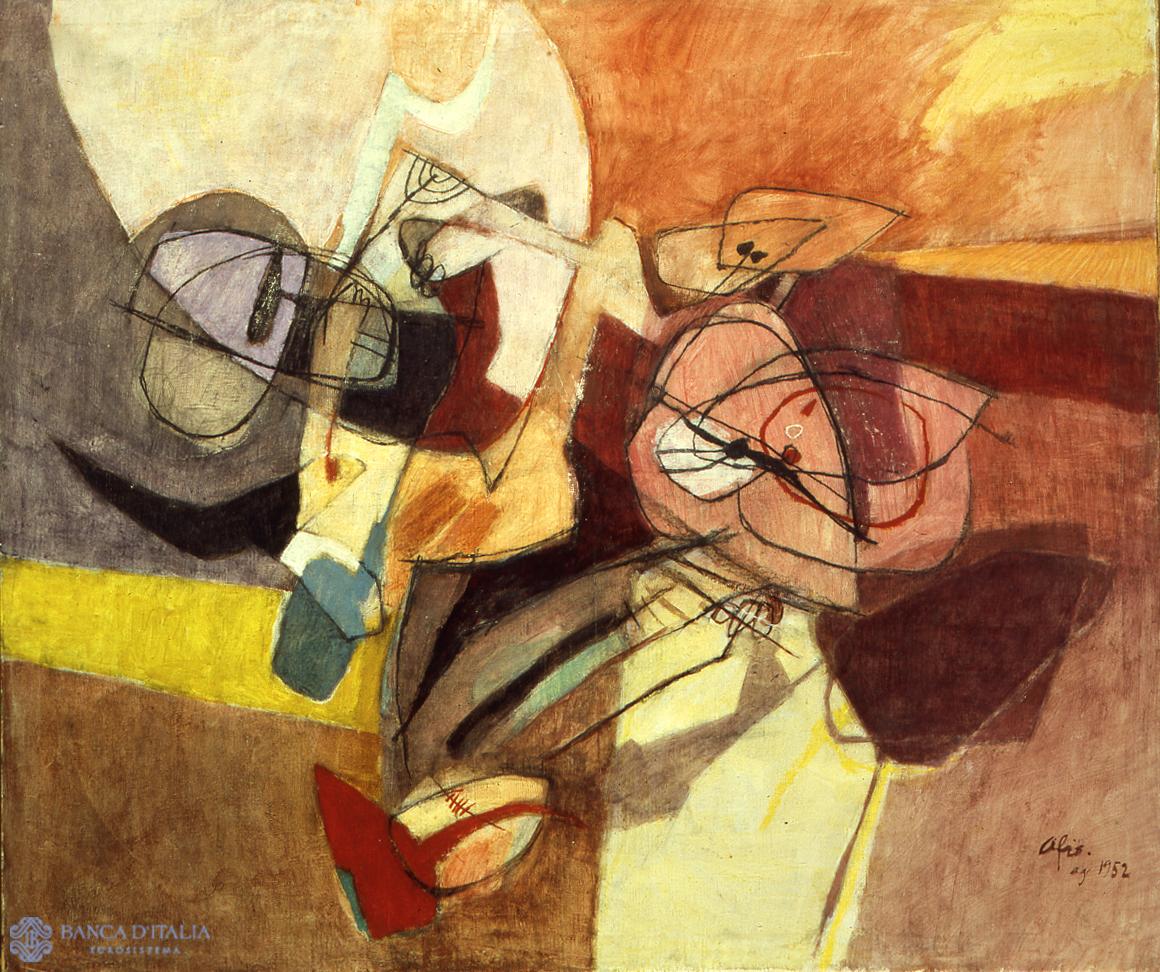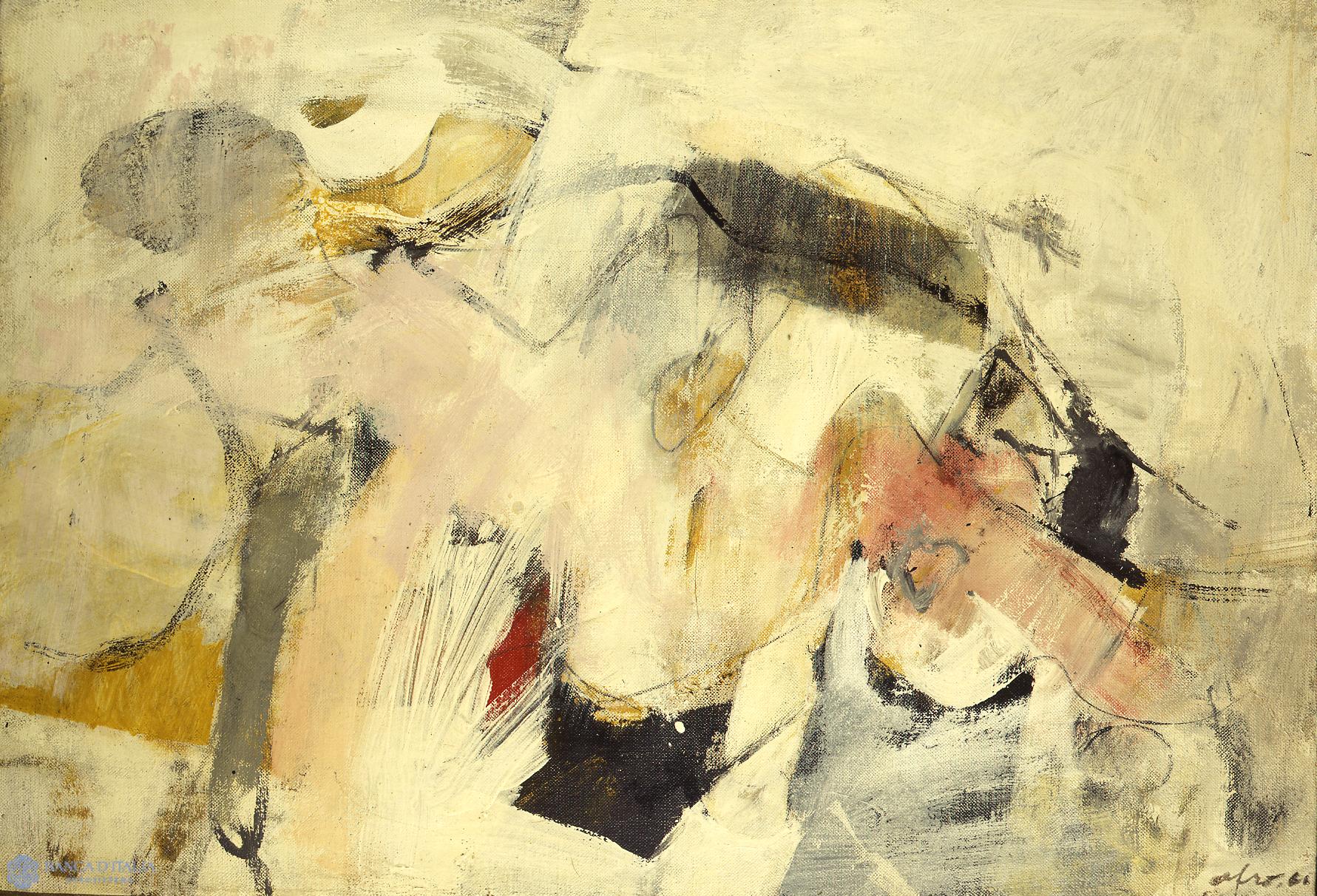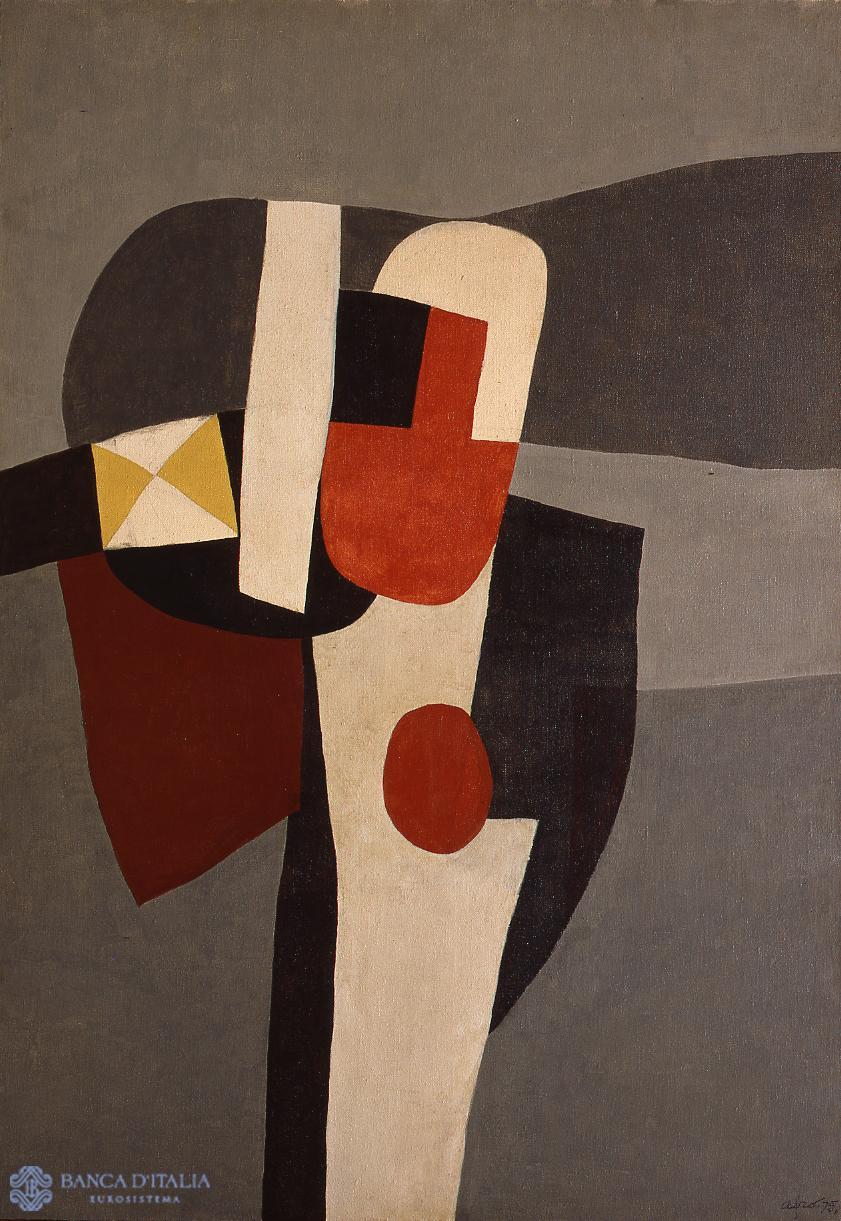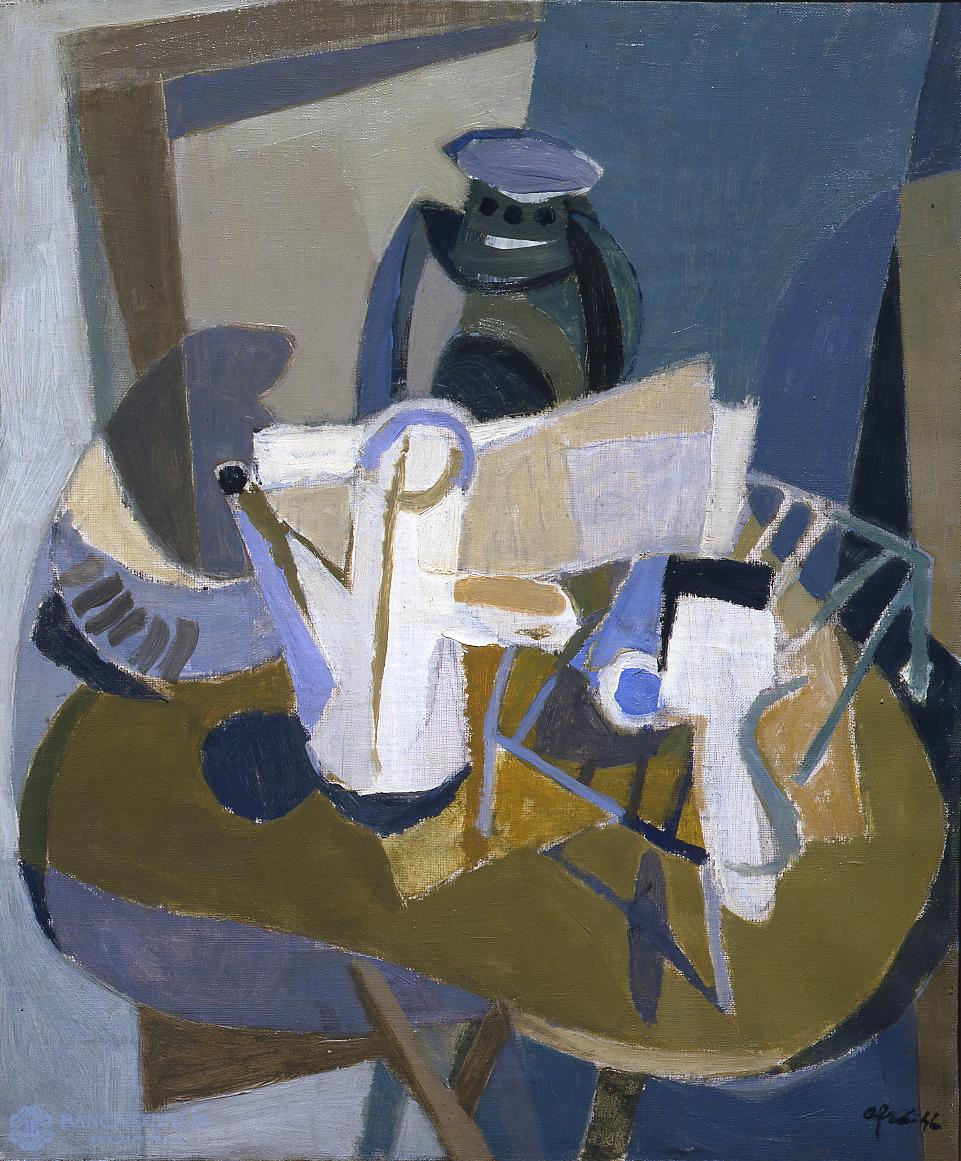Afro Libio Basaldella (all his works were simply signed ”Afro”) was born in Udine in 1912, the third son after Dino and Mirko, destined to become two of the best Italian sculptors of their generation. Even at the height of his international career, Afro would remain profoundly attached to his native Friuli, as he would to a centuries-old tradition, known as “Venetian”, of using pure colour in painting. He made his debut as a teen-ager in 1928, when along with his brothers he took part in the collective show Scuola Friulana d’Avanguardia, whose name testified to a shared desire for renewal in contrast to the lofty and declamatory styles of the Novecento.
Afro later spent time in Rome, Milan and Venice, forging ties on each occasion with the groups that were most attracted to the new. In the years after the Second World War, as part of his quest for a linguistic renaissance he believed was essential, he briefly considered espousing Neo-Cubism, producing highly sophisticated works, each one tonally fine-tuned to one dominant colour. The works revealed Afro’s background in ”crafts”, acquired in the course of the many interior decoration projects he executed during the Fascist period as well as his predilection for colour as the fulcrum of images.
In 1950, during an extended stay in America on the occasion of his first one-man show in New York, he met the masters of action painting, in particular Gorky, whose abstract surrealism captivated him. Back in Italy he produced his first masterpieces, which from that time onwards would be founded on the persistence of a truth that memory profoundly transfigured, later becoming increasingly abstract and gestural. In the 1950s and 1960s Afro’s reputation became truly worldwide, and he was one of the very first Italians to enjoy economic success outside of Italy and Europe. Up until his last years, which would see a singular confinement of his paintings in closed and geometrical forms, typical of a neo-concrete tradition that even as a young man Afro had never been attracted to.
Afro Libio Basaldella
Afro Libio Basaldella (Udine 1912 - Zurich 1976)
20th century AD
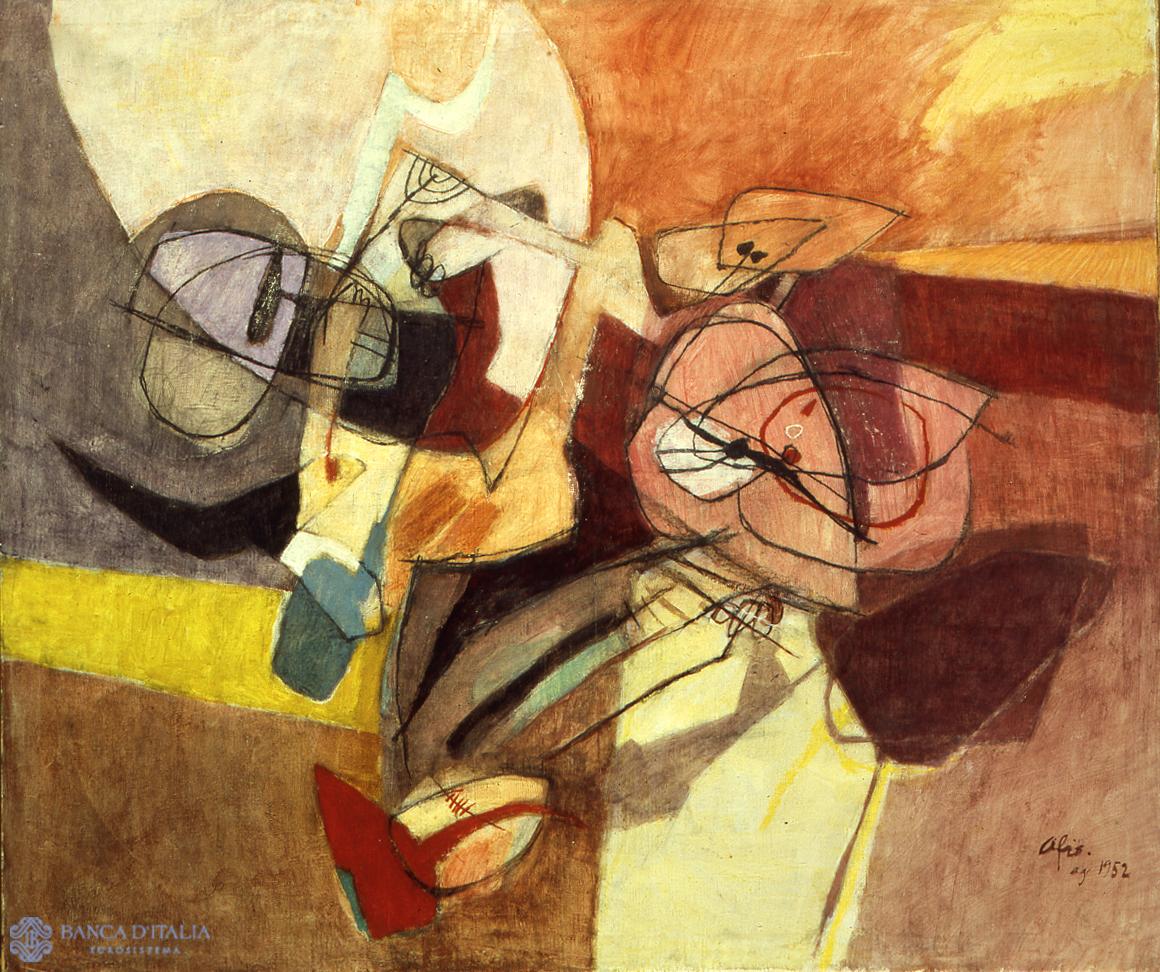
Compiler
Fabrizio D'Amico

